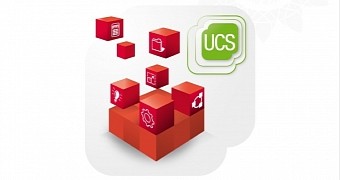Univention, through Maren Abatielos, was extremely happy to inform Softpedia earlier today, November 17, about the final release of their Univention Corporate Server (UCS) 4.1 Linux kernel-based, server-oriented operating system.
Prominent features of Univention Corporate Server 4.1 include support for Docker-based apps in the UCS App Center, Samba 4.3.1 with support for the latest SMB 3.1.1 protocol introduced in the Microsoft Windows 10 operating system, as well as the implementation of Single Sign-On (SSO) authentication via SAML (Security Assertion Markup Language).
Powered by the long-term supported Linux 4.1 kernel 4.1, the Univention Corporate Server 4.1 operating system further improves the usability and reliability of the Univention App Center with support for displaying apps more clearly, as well as support for ratings in the Editor's Award, Popularity's Award, and Vendor Supported categories.
"Our dev team has just managed to release UCS 4.1, as scheduled," said Maren Abatielos in an email to Softpedia. "As already mentioned in our first milestone, UCS 4.1 stands out with its integration of the Docker technology in the Univention App Center, the introduction of single sign-on via SAML technology and many more improvements concerning security and user friendliness."
What Docker integration means for UCS
By implementing Docker-based apps into Univention Corporate Server 4.1, the conflicts created by different versions of a software library in the distribution will be extinct. Docker is the number one Linux container engine in the world, used by numerous GNU/Linux operating systems and by thousands of hundreds of people worldwide, and it will make sure that UCS can be easily deployed through dedicated containers.
Univention Corporate Server 4.1 is based on the latest Debian GNU/Linux 8.2 (Jessie) operating system and it is available for download for 64-bit systems, as well as virtual machine images for the well-known Oracle VirtualBox and VMWare virtualizations software, or on the Amazon Machine Image (AMI) on the Amazon EC2 cloud hosting platform.

 14 DAY TRIAL //
14 DAY TRIAL //